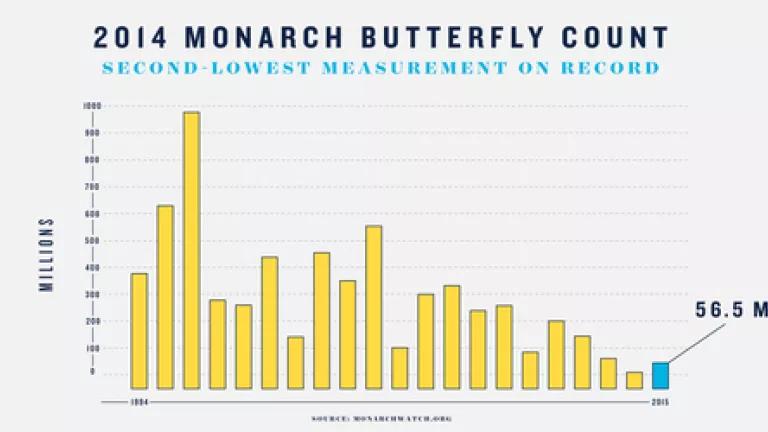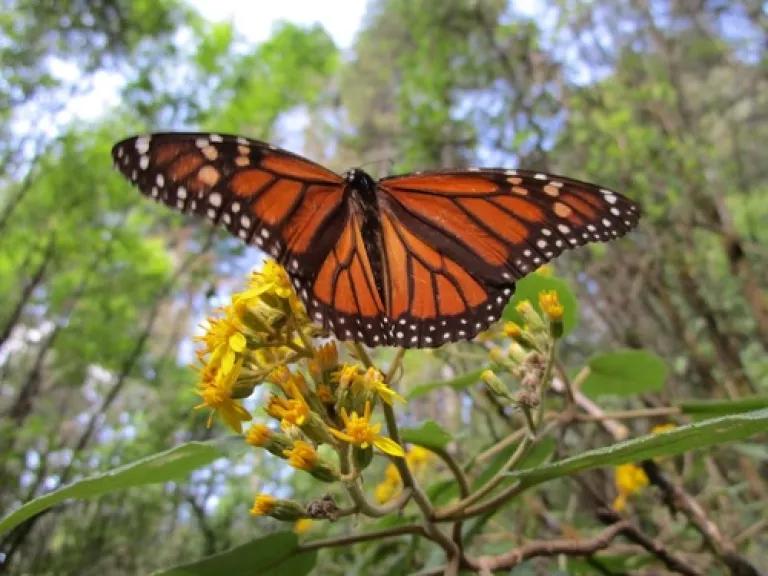
Last year NRDC filed a petition with EPA asking them to review the use of glyphosate (also known as Roundup) in light of its effects on monarch butterflies and to impose restrictions on its use. After more than a year, EPA has yet to respond to our petition so today we are filing a lawsuit to compel them to act with expediency.
Anyone who has been following the plight of the monarch butterflies knows that they are in trouble. In the last 15 years their population has dropped dramatically from a high of a billion in the late 1990s to a mere 56.5 million this year--the second lowest count on record.
While more than 50 million butterflies may sound like a lot, it is actually dangerously low. The population which spends its winters in the forests of Mexico is vulnerable to cold snaps or other weather events which in the past have killed more butterflies than the existing population.
Scientist agree that the leading factor in the decline of monarch butterflies is the loss of milkweed, a native wildflower that the caterpillars depend on as their only food source. With the adoption of genetically modified crops that are resistant to the application of the herbicide glyphosate (also known as Roundup) milkweed that was once found in agricultural fields has been largely eliminated from the agricultural Midwest. And without sufficient amounts of milkweed the monarch population has declined.
The EPA is responsible for ensuring that the pesticides it approves do not have harmful effects on the environment. Clearly, the decline of monarch butterflies was an unintended consequence of the broad use of glyphosate. However, now that it has been identified the EPA needs to review glyphosate and impose restrictions that would help mitigate the damage that it is doing to monarch butterflies. Instead, the EPA recently approved another pesticide containing glyphosate, Enlist Duo, which we are challenging.
Rather than approving more pesticides, it's time for EPA to reverse the damage that these pesticides are causing. Since the EPA last reviewed glyphosate, its use in the US has soared. This unprecedented onslaught is hurting the monarchs as they make their migration, which will begin soon. We, and the monarchs, can't afford to wait any longer for EPA to act.


